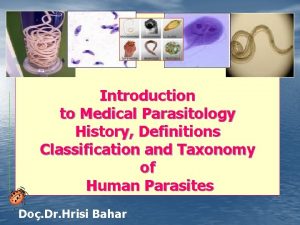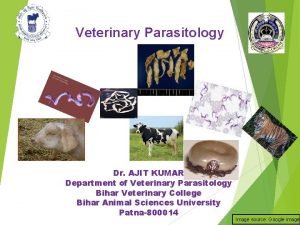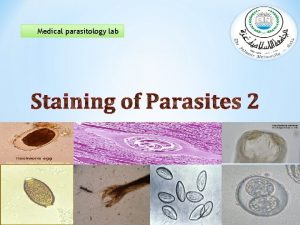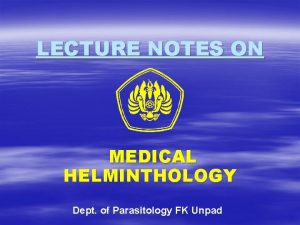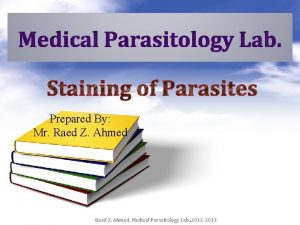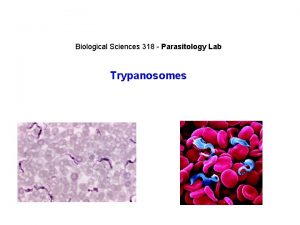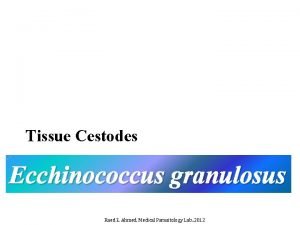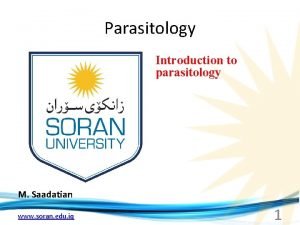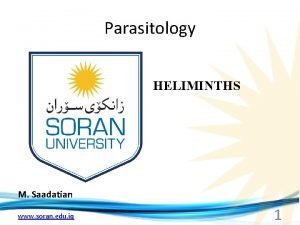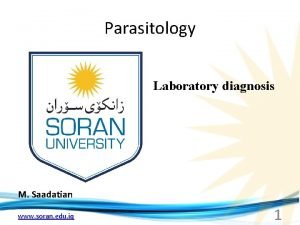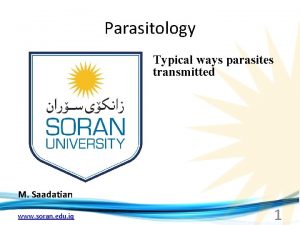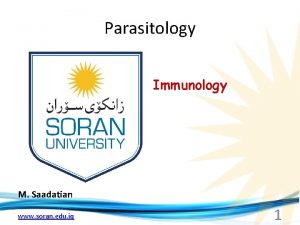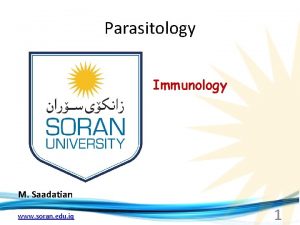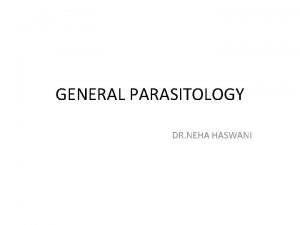Parasitology CLASSIFICATION OF MEDICAL PARASITOLOGY M Saadatian www









- Slides: 9

Parasitology CLASSIFICATION OF MEDICAL PARASITOLOGY M. Saadatian www. soran. edu. iq 1

CLASSIFICATION OF MEDICAL PARASITOLOGY www. soran. edu. iq

• Parasites of medical importance come under the kingdom called protista and animalia. • Protista includes the microscopic single-celled eukaroytes known as protozoa. • In contrast, helminthes are macroscopic, multicellular worms possessing well differentiated tissues and complex organs belonging to the kingdom animalia. www. soran. edu. iq

Medical Protozoology • Deals with the study of medically important protozoa. Medical Helminthology • Deals with the study of helminths (worms) that affect man. Medical Entomology • Deals with the study of arthropods which cause or transmit disease to man. www. soran. edu. iq

Nomenclature Describing animal parasites follow certain rules of zoological nomenclature and each phylum may be further subdivided as follows: www. soran. edu. iq

PROTOZOA Protozoan parasites consist of a single "cell-like unit" which is morphologically and functionally complete and can perform all functions of life. They are made up of a mass of protoplasm differentiated into cytoplasm and nucleoplasm. The cytoplasm consists of an outer layer of hyaline ectoplasm and an inner voluminous granular endoplasm. The ectoplasm functions in protection, locomotion, and ingestion of food, excretion, and respiration. In the cytoplasm there are different vacuoles responsible for storage of food, digestion and excretion of waste products. The nucleus also functions in reproduction and maintaining life. The protozoal parasite possesses the property of being transformed from an active (trophozoite) to an inactive stage, losing its power of motility and enclosing itself within a tough wall. The protoplasmic body thus formed is known as a cyst. At this stage the parasite loses its power to grow and multiply. The cyst is the resistant stage of the parasite and is also infective to the human host. www. soran. edu. iq

CLASSIFICATION OF MEDICALLY IMPORTANT PARASITES www. soran. edu. iq

www. soran. edu. iq

www. soran. edu. iq
